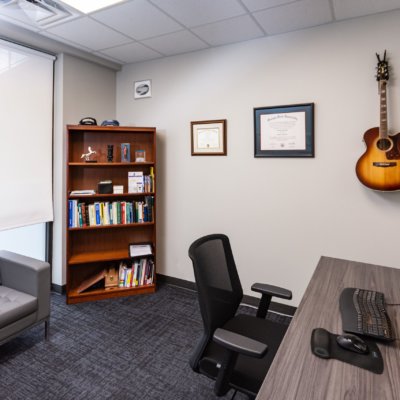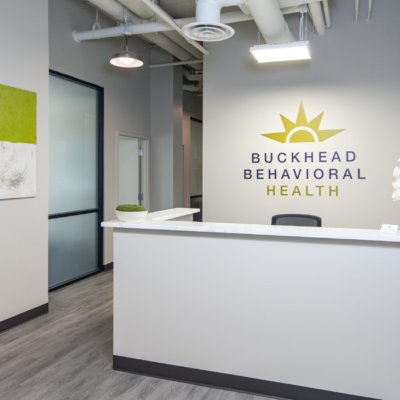Inpatient rehab, also known as residential treatment, plays a crucial role in the journey to recovery for individuals battling substance use disorders. At Buckhead Behavioral Health, we collaborate with reputable residential treatment centers and inpatient rehab programs in the Atlanta, GA area to offer a secure and nurturing environment for those seeking a new beginning. Our partnerships ensure that clients receive the highest quality of care, with access to a range of resources and support systems to aid in overcoming addiction and rebuilding their lives.
If you or a loved one is struggling with addiction or dual-diagnosis disorders, understanding the importance of appropriate treatment is crucial. Residential or inpatient rehab in Atlanta provides patients with 24/7 care in order to help them through their addiction. In Atlanta, the availability of various levels of care, especially inpatient rehab, is essential for those facing severe addiction.
What is Residential Rehab?
Residential rehab, commonly referred to as inpatient rehab, is a form of addiction treatment where individuals reside in a treatment facility 24 hours a day, seven days per week. This type of rehab is designed for those with moderate to severe substance use disorders who require a structured and monitored environment. Inpatient rehab in Atlanta, GA, provides round-the-clock care, including medical supervision, counseling, and therapy, to address the physical, emotional, and psychological aspects of addiction.
This setting provides a structured environment, away from potential triggers and daily stressors, allowing individuals to focus solely on their recovery. It’s particularly beneficial for those with severe addiction issues, requiring constant medical supervision and a comprehensive treatment approach.
How Do I Know I’m a Good Fit For Residential Rehab?
Determining the need for residential rehab can be challenging. It’s typically recommended for individuals struggling with various forms of addiction, such as alcohol, drugs, or mental health issues. Indicators that residential rehab may be necessary include addiction to substances like opioids, fentanyl, benzodiazepines (benzos), stimulants, kratom, cocaine, heroin, valium, and methamphetamine. If you find yourself unable to manage daily life due to addiction, or if outpatient treatments have been ineffective, residential rehab might be the next step.
You might be a good fit for residential rehab if you:
- Have a severe or long-standing addiction.
- Have relapsed after previous treatment attempts.
- Require medical detoxification or have co-occurring mental health disorders.
- Lack a supportive home environment or are exposed to triggers that make recovery challenging.
If you’re unsure whether inpatient rehab in Atlanta, GA, is right for you, our team can help assess your needs and recommend the appropriate level of care.
Services Offered at Residential Rehab
Residential rehab centers provide a wide range of services designed to support individuals in their journey to recovery from substance use disorders. The services offered allow for a comprehensive recovery process that addresses the physical, psychological, and emotional aspects of addiction. These services are tailored to meet the unique needs of each client.
Key components of treatment typically include the following services:
- Detox: The first step in most addiction treatments is where the body is cleansed of substances in a safe and medically supervised environment. Detox programs help manage withdrawal symptoms and prepare the individual for further treatment.
- Individual Therapy: One-on-one counseling sessions with a licensed therapist help clients explore the underlying causes of their addiction, develop coping strategies, and work through personal issues contributing to substance use.
- Group Therapy: Led by a therapist, group sessions allow clients to share experiences, offer support, and learn from others who are facing similar challenges. Group therapy can foster a sense of community and reduce feelings of isolation.
- Family Therapy: Addiction affects not only the individual but also their loved ones. Family therapy sessions can help repair and strengthen relationships, improve communication, and address the impact of addiction on the family unit.
- Medication-Assisted Treatment (MAT): For some addictions, FDA-approved medications in MAT programs help to manage withdrawal symptoms, reduce cravings, and treat any co-occurring mental health disorders.
- Dual Diagnosis Treatment: Many individuals with substance use disorders also have co-occurring mental health conditions. Dual diagnosis treatment addresses both issues simultaneously, providing integrated care that improves overall outcomes.
- Cognitive-Behavioral Therapy (CBT): A widely used therapeutic approach that helps clients identify and change negative thought patterns and behaviors that contribute to addiction.
- Dialectical Behavior Therapy (DBT): A form of therapy that teaches clients skills for managing emotions, reducing stress, and improving relationships, particularly useful for those with co-occurring disorders.
- Relapse Prevention Planning: Clients learn strategies to identify and cope with triggers, manage cravings, and maintain sobriety after leaving rehab.
- Nutritional Counseling and Holistic Wellness: Proper nutrition and physical activity are essential components of recovery. Many rehabs offer programs that focus on healthy eating, exercise, and overall wellness. Holistic approaches such as yoga, meditation, and art therapy are often incorporated to promote overall well-being and complement traditional treatment methods.
- Life Skills Training: Clients can receive training in areas such as financial management, job readiness, and communication skills to help them rebuild their lives and maintain sobriety.
- Aftercare Support: Ongoing support is crucial for maintaining long-term recovery. Residential rehabs often provide or connect clients with aftercare resources such as support groups, therapy, and sober living arrangements.
Residential Rehab Therapy Styles
The core therapy styles are very similar across all lengths of time, and they may include the following:
Counselling Sessions
- These private 1-on-1 therapy sessions can help a patient through personal issues, triggers, finding leading causes, and working through the process of recovery.
- Family therapy sessions can include other members of the family and can potentially help to heal all parties both emotional, mental and the physical addiction as well.
- Treatment sometimes requires medication to help control impulses in hopes to help overcome the short-term withdrawal symptoms a patient might have. These are just to get the patient better while they recover so they stop all medication eventually.
- Support group meetings are a big part of residential rehab as they allow patients to help each other grow and see different perspectives. They can sit and listen to others or share themselves, which can make a big impact on healing.
What to Expect in Our Inpatient Rehab in Atlanta?
Our partnered inpatient rehab centers in Atlanta, GA, offer a structured and supportive environment where individuals can focus solely on their recovery.
Here’s what you can expect when attending a residential treatment center:
- Assessment: A comprehensive evaluation to tailor a treatment plan to your specific needs.
- Therapy: Individual, group, and family therapy sessions to address underlying issues and develop coping strategies.
- Activities: Holistic and recreational activities to promote physical and mental well-being.
- Aftercare Planning: Assistance in planning for ongoing support and care after leaving rehab.
How Long Does Rehab Last?
The duration of residential rehab can vary depending on the individual’s needs, the severity of their addiction, and their progress in treatment. Typically, programs can last anywhere from 30 days to 90 days, with some facilities offering longer stays if necessary. Short-term programs, usually around 30 days, are often effective for those with less severe addictions or as a starting point for longer-term treatment.
On the other hand, long-term programs, which can last 60 days, 90 days, or even longer, provide a more in-depth approach to address complex issues and ensure a solid foundation for recovery. It’s important to note that the length of stay should be determined based on the client’s specific situation and treatment goals, with the understanding that longer stays are generally associated with better outcomes.
Benefits of Inpatient Rehab in Atlanta
Choosing inpatient rehab in Atlanta, GA, provides a multitude of benefits that can significantly enhance your recovery journey:
- Focused Environment: Our residential rehab facilities offer a peaceful, distraction-free setting that allows you to fully concentrate on your recovery. Being removed from the triggers and stresses of everyday life helps you stay committed to the healing process.
- Comprehensive Care: You’ll have access to a multidisciplinary team of professionals, including therapists, psychiatrists, medical doctors, and nurses, who specialize in addiction treatment. This team works collaboratively to create a personalized treatment plan that addresses your unique needs.
- Peer Support: Inpatient rehab provides the opportunity to connect with others who are facing similar challenges. This sense of community and understanding can be incredibly supportive and motivating, as you share experiences, offer encouragement, and build lasting friendships.
- Safety and Stability: Our facilities provide a safe and stable environment that is crucial during the early stages of recovery. With 24/7 medical supervision and support, you can feel secure knowing that help is always available.
- Holistic Approaches: Many inpatient rehabs in Atlanta, including those we partner with, offer holistic therapies such as yoga, meditation, art therapy, and equine therapy. These approaches can help you develop new coping skills, reduce stress, and improve your overall well-being.
- Life Skills Training: Rehab isn’t just about overcoming addiction; it’s also about preparing for a life in recovery. Our programs often include life skills training, such as financial management, communication skills, and job readiness, to help you rebuild a stable and productive life.

Will I Lose My Job if I Go to Rehab?
The concern about losing employment is a common barrier for individuals considering inpatient rehab for substance use disorders. However, several legal protections are in place to safeguard your job while you seek the help you need:
- Family and Medical Leave Act (FMLA): This federal law allows eligible employees to take up to 12 weeks of unpaid, job-protected leave per year for medical reasons, including substance abuse treatment. To qualify, you must work for a covered employer and have worked for at least 1,250 hours over the past 12 months.
- Americans with Disabilities Act (ADA): The ADA protects individuals with disabilities, including those with substance use disorders, from discrimination in the workplace. It also requires employers to provide reasonable accommodations, which can include time off for treatment, as long as it doesn’t cause undue hardship to the employer.
- State Laws: Some states have additional laws that provide further protections for employees seeking treatment for substance use disorders.
It’s essential to have an open and honest conversation with your employer about your need for rehab. Many employers offer Employee Assistance Programs (EAPs) that provide confidential support and resources for employees dealing with personal issues, including substance abuse.
Before taking leave, ensure you understand your company’s policies and the requirements of applicable laws. It may also be beneficial to consult with a legal professional or an HR representative to navigate your rights and responsibilities.
Remember, seeking help for a substance use disorder is a courageous step towards a healthier life, and legal protections are in place to support you in this journey while safeguarding your employment.
Begin Inpatient Rehab in Atlanta Today
If you or someone you care about is struggling with addiction, our network of partnered inpatient rehab centers in Atlanta, GA, is here to provide the necessary support and care for a successful recovery journey. Reach out to us today to explore your options and take the first step towards a healthier, substance-free future.
At Buckhead Behavioral Health, we are dedicated to helping individuals of all ages and walks of life connect with the life-saving care they need to make a full recovery. Learn more about our admission process and begin the road to recovery now.
Contact Us
Areas We Serve
Marietta

Alpharetta

Athens

Savannah














